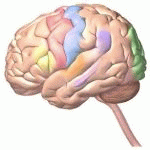Neurology
|
25 april 2014 01:50:33 |
| The decision-making process leading to deep brain stimulation in men and women with parkinson`s disease - an interview study (BMC Neurology) |
|
Tweet Background:
Deep brain stimulation (DBS) is an established treatment for patients with advanced parkinson`s disease (PD). Research shows that women are under-represented among patients undergoing DBS surgery. This may be due to gender-biased selection of patients, but patients` wishes and attitudes may also contribute. This study investigated the decision making process to undergo DBS from the patient`s perspective, and explored any gender patterns in the participants` decision-making.
Methods:
All patients operated on with DBS for PD at the University Hospital of Northern Sweden between January 2002 and April 2010 were invited to an interview study. In this way 39 patients were recruited, 31 men and eight women. Three additional women, operated elsewhere, were recruited to acheive a more gender-balanced sample. In a mixed-method analysis, the interviews were analysed according to the constant comparison technique in grounded theory and descriptive statistics was used to present demographics and compare categories.
Results:
Three different approaches to DBS were identified among the patients. `Taking own initiative`, included 48% of the patients and implied that the patients` own initiatives and arguments had been crucial for having surgery. `Agreeing when offered`, and accepting DBS when suggested by doctors embraced 43%. The third approach, `Hesitating and waiting` included < 10% of the patients. Most of the men were either `taking own initiative` or `agreeing when offered`. The 11 women were evenly distributed in all three approaches. Among the interviewed, more women than men expressed strong fear of complications and more women consulted friends and relatives prior to deciding about DBS. Half of the patients had held a leadership position at work or in another organisation, and among patients `taking own initiative` the proportion with leadership experiences was 80%. At time for surgery ten men but no woman were professionally active.
Conclusion:
This study suggests that many patients with advanced PD have to argue and struggle with their clinicians in order to be referred to a DBS-team. The study further suggests that patients` wishes, behaviour and position in society may all contribute to the skewed gender distribution among patients treated with DBS. |
| 174 viewsCategory: Neurology |
 Chronic brain inflammation causes a reduction in GluN2A and GluN2B subunits of NMDA receptors and an increases in the phosphorylation of mitogen-activated protein kinases in the hippocampus (Molecular Brain) Chronic brain inflammation causes a reduction in GluN2A and GluN2B subunits of NMDA receptors and an increases in the phosphorylation of mitogen-activated protein kinases in the hippocampus (Molecular Brain)Grid cells in an inhibitory network (Nature Neuroscience) 
|
| blog comments powered by Disqus |
MyJournals.org
The latest issues of all your favorite science journals on one page
The latest issues of all your favorite science journals on one page



